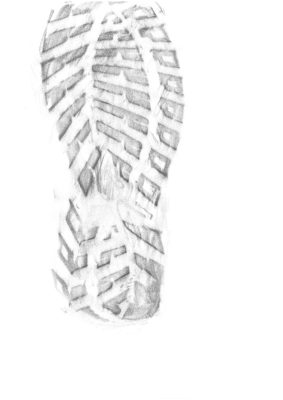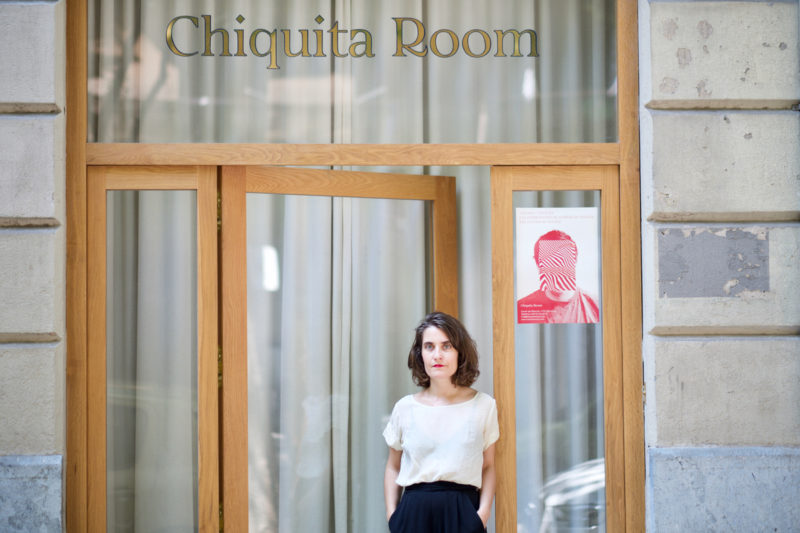Search
To search for an exact match, type the word or phrase you want in quotation marks.
A*DESK has been offering since 2002 contents about criticism and contemporary art. A*DESK has become consolidated thanks to all those who have believed in the project, all those who have followed us, debating, participating and collaborating. Many people have collaborated with A*DESK, and continue to do so. Their efforts, knowledge and belief in the project are what make it grow internationally. At A*DESK we have also generated work for over one hundred professionals in culture, from small collaborations with reviews and classes, to more prolonged and intense collaborations.
At A*DESK we believe in the need for free and universal access to culture and knowledge. We want to carry on being independent, remaining open to more ideas and opinions. If you believe in A*DESK, we need your backing to be able to continue. You can now participate in the project by supporting it. You can choose how much you want to contribute to the project.
You can decide how much you want to bring to the project.

Dear people:
I’m writing to you from the hall of lost footsteps. In French architectural culture, that’s how grand lounges capable of concentrating a large number of people to scatter them elsewhere in a building are known (salle des pas perdus), especially in official headquarters. It is a hall that may be located at the entrance or indoors, ideally where ways intersect before meeting their destination. It’s a place of passage and it might be interesting to regard it beyond a focal point, thinking that exchanges may favour the casual encounter of a new direction (or maybe several of them). That’s why I intend to stay here for a while and see what comes up or who passes by, and try to choose other ways which were not in my schedule.
The golden twenties of this 21st century got kick-started by a massive slap called Coronavirus, which has turned our ways of living, of working, our relationships, our routines upside down and has forced us to stop as a way in itself. To end 2020, the artist Isabel Banal i Xifré offered me to write El llibre dels passos perduts, a publication which reflects on lockdown during the first state of emergency, an exceptional situation which kept us at home for 100 days. During that time, Isabel made a frottage with the soles of all the shoes which had to be kept in boxes and couldn’t be used, indirectly alluding to those places in spaces of power, like the hall of lost footsteps in Madrid’s Congress of Deputies or the hallway of lost footsteps at the Palace of the United Nations in Geneva. It’s a shame that art and culture are never here the priority, no matter if things are going well or wrong.
In her book, Isabel brings together the two realms we have been moving through (and where we have been moved through): home, an intimate space with traditionally female implications, and the so-called public space, traditionally with traditionally male implications. In my view, the deliberate passage which allows people to inhabit those spaces during our shift from one place to another may help us to gain insight. And, of course, including in the equation the third landscape proposed by Gilles Clément, made up of residual spaces left outside of regulations. In these places where mixing prevails, their preservation doesn’t rely upon the establishment but upon collective consciousness, in the same way that the soles of our shoes are the contact surface touching the territory and we become imbued with something of it in them. Becoming contaminated of the community and the margins may lead the way to a new immunoprotective order, so to speak.
I still defend stopping to think as something that can be helpful for a better understanding of what’s going on and why we switch so quickly to autopilot mode, even after such a slap. Allowing ourselves time to relish how it feels may spare us the next slap. That’s why I think it necessary to instruct ourselves in inaction as much as in action and hesitancy as much as in determination, to consider a different order or a counterpoint to order. That’s where art should have something to say. It’s essential to retrace our steps in order to examine, appraise and analyse where we came from if we want to figure out where to go next. It saddens me to think that artistic education and culture seem to have been hijacked by official and officious circuits, that the people in charge don’t seem up to task (or expected to). So this might be the right timing and the hall of lost footsteps might be the right place to consider changing the rules of the game, attending to other, non-hegemonic voices, practising self-regulation and cares, presence and transparency.
I applaud having seen, in 2020, undertakings such as the seminar Arte y comunidad (Restaurando el vínculo de lo colectivo) by the University of Barcelona and I am very pleased that through exhibitions To talk about trees, by Sara Agudo Millán, or Time Bends as We Come Closer, by Pedro Torres, we have reflected at Chiquita Room on relevant topics which affects us somehow as to what’s essential collectively: be it through our relationship with plants and the climate crisis or the curvature of space-time and the gravitational pull. I’m less pleased about having to cancel yet another exhibition on the construction and blurring of identity, but I’m happy to have awaited this January to open Ubi Consistam in their presence.
I like to see how the hybrid and collaborative character of this room has allowed us to set up partnerships with like-minded projects who share our values, such as the Dart Festival of documentary film and the Como Pedro por mi casa artist books festival. Here, a small emerging collectors club was born via annual subscription to Chiquita Room Collectors, and a group of artists, psychoanalysts and other people with suggestive ideas have come together around the least orthodox Lacanian billboard ever, under the name “Tránsitos”. It’s been beautiful. I feel proud to devote efforts and resources to think and develop an ad hoc digital strategy on time, despite its/my mistakes, keeping a friendly and gentle attitude as far as I could, while offering the same physical attention. I’m also glad of sending those letters during lockdown and of writing them still every once in a while, until the present moment at least, dear people.
In The disappearance of rituals, the south Korean philosopher Byung-Chul explains why symbolic actions hold society together and he reflects on alternative lifestyles which are able to free it from its collective narcissism, our own. The book reclaims the idea by Antoine de Saint-Exupéry that rituals are to time what dwelling is to space. And if we dwell and remain here, instead of blindly forging ahead, we can experience again how these acts are genuinely human, how they provide stability to our lives and how they turn into something magical and festive, even in adverse conditions. With rites, collective and enduring feelings are represented. By contrast, the current communicational void, fraught with data and information devoid of any symbolic power, is built on ephemeral feelings and fleeting passions, specific to self-isolated individuals. Now is the time to create new courses of action and collective play which are capable to build community. And here, art will also have something to say.
I say farewell with this poem by Roberto Juarroz, so we can toast to the footsteps we have yet to take, even if we don’t have a glass or shoes. Let’s celebrate and hope our roads will meet before our final destination and that we watch 2021 from above the clouds.
It feels to me sometimes
That we are at the centre
Of the party
However
At the centre of the party
There is nobody
At the centre of the party
Is emptiness
But at the centre of emptiness
There’s another party.
With love,
Chiquita
(Featured Image: El llibre dels passos perduts, Isabel Banal i Xifré)

I have a degree in Journalism, with a master’s degree in editing. I am also trained in art and creativity, organizational and social innovation. I have developed my career in the field of strategic and corporate communication in the digital environment of the cultural sector. I have written for national and international publications such as El Triangle, “it” or Trendland, and coordinated projects, such as Absolut Mode Society or Infocable Editorial in Barcelona and Bogotá. I have been in charge of the communication of film and photography festivals, such as DOCfield, Barcelona Creative Commons Film Festival, or Festival Oh là là of French-speaking cinema. Now I run Chiquita Room, a center for art and contemporary creation in Barcelona, which develops its activity as a gallery, residence and publishing house for artist’s books.
"A desk is a dangerous place from which to watch the world" (John Le Carré)